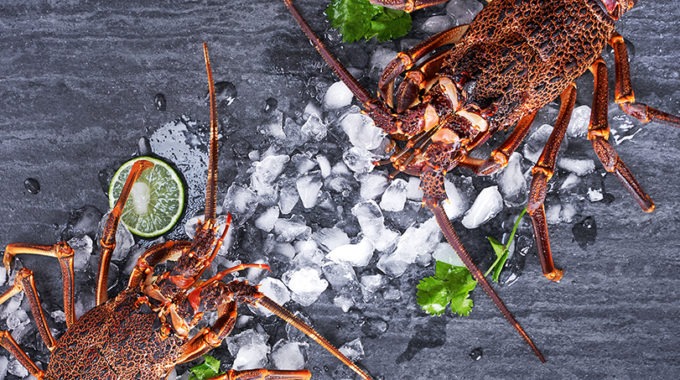Lobster wars: what’s going on with China?
China is big business for Australia, normally accounting for one-third of all the export dollars we earn. But in recent months, the economic powerhouse has inexplicably turned on its former friendly trading partner. Enormous tariffs on barley and wine exports have been introduced, imports from six Australian beef suppliers have now been suspended, and numerous shipments of premium rock lobster – of which China is the world’s biggest importer – have been stranded at airport tarmacs.
Exporters have been left scratching their heads, with many seeing once fruitful trading relationships halt overnight. Meanwhile, China is keeping mostly mum on the subject (when it’s not inflaming tensions with doctored photographs on social media), with politicians unable to get their Chinese counterparts to come to the table for trade talks.
When speaking on 5AA’s Breakfast with David Penberthy and Will Goodings, Trade Minister Simon Birmingham said that the Australian government was “very disappointed and aggrieved” with China’s recent actions.
“But we remain willing to have dialogue, to work through these sorts of issues,” he said. “I think that’s the mature approach. Obviously, we can’t make anybody come to the table for those sorts of discussions, and that’s why a bit of patience is required, too.”
Unfortunately, for many of our exporters, patience is not exactly helpful. Produce still needs to be sold, and staff still need to be paid. This means producers have had to scramble very quickly, and attempt to find new markets for their products.
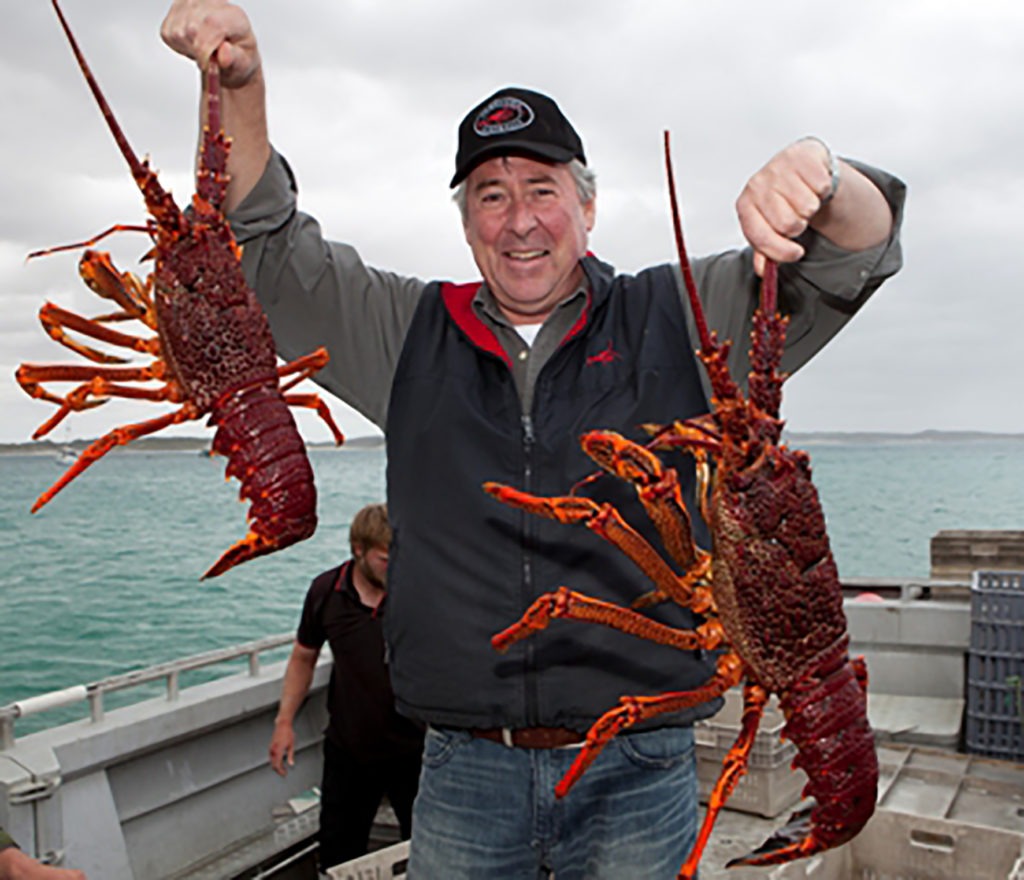
Lobster losses
Family-owned and operated Ferguson Group in South Australia normally exports around 350 tonnes of southern rock lobster to China each year. In October, six of Ferguson’s nine shipments of lobster to Chinese airports were held at quarantine for inspection.
“We received a warning that we were going to have our lobsters checked at the airport,” says Ferguson Australia’s Managing Director, Andrew Ferguson. “It was too late, as we’d already sent them. They were checking for heavy metals, apparently, and the procedure meant it held a lot of a stock up. The lobsters died because they were held up too long.
“It wasn’t just our lobsters. The whole industry was in the same boat. I think in total, about 31 shipments of Australian lobsters got held up, equivalent to about 22 or 23 tonnes.”
Ferguson says it is now “too risky” to send lobster to China, and has ceased all exporting there. No orders are coming out of China either. Chinese customers aren’t ordering because of the risk they’ll not receive the goods. Meanwhile, China is still buying the same species of lobster from New Zealand.
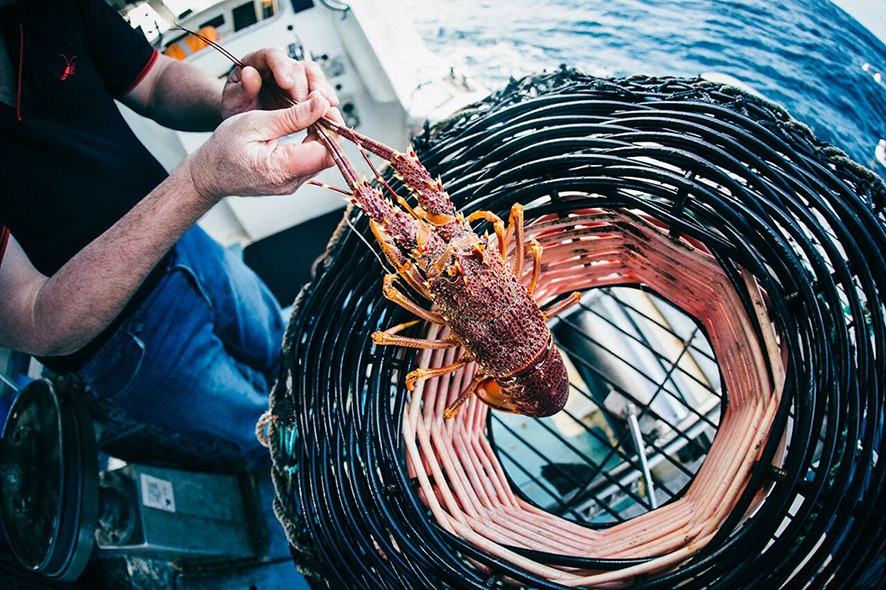
Moving on
In 2018-2019, China accounted for 94 percent of Australian rock lobster exports. Now, that lucrative market has ground to a sudden halt. The impact on lobster exporters like Ferguson’s has been huge, to say the least.
“You wake up one morning, and you haven’t got an export market,” Ferguson says. “You’ve got to reboot your business into another market – or markets – somewhere else. I’ve got a lot of staff, nearly 800 staff, all needing wages, so it’s pretty severe.”
With China off the table, seafood exporters are now looking to the domestic market to shift their produce. Ferguson Australia has struck a deal with independent South Australian supermarket chain Drakes, which is now selling their rock lobsters in 43 outlets.
“Straight off the bat we’re doing a lot of work in the local market,” Ferguson says. “Christmas is close, and we’re offering lobsters at pretty good prices. We can’t sit around. We have to move on, so we’re moving on to other markets.”
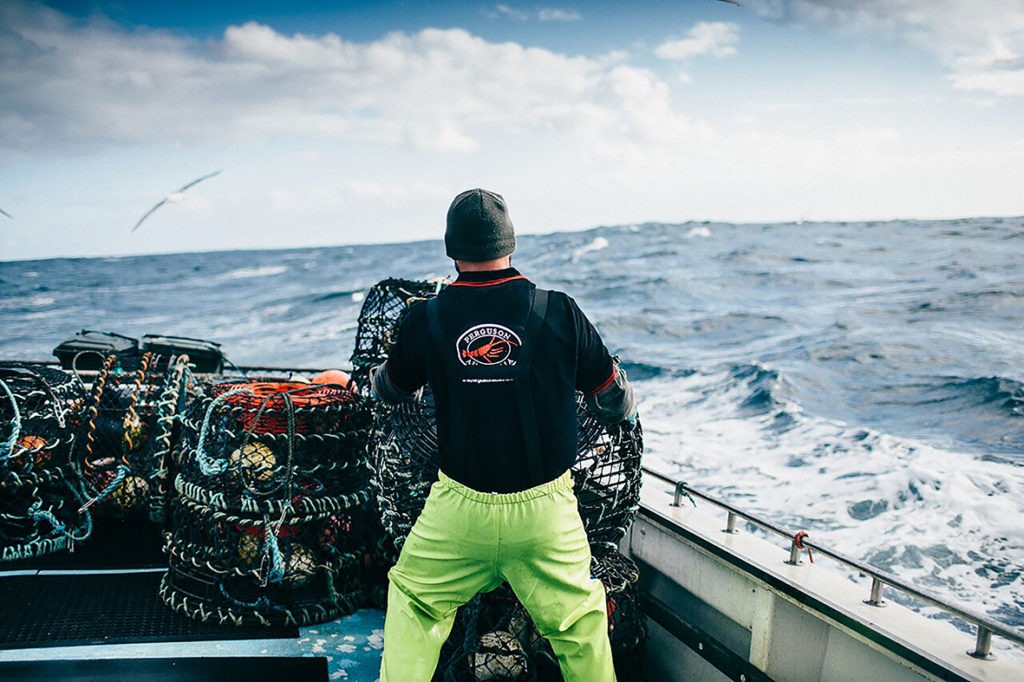
No solution in sight
Adding to the stress of the situation, exporters are still in the dark about what’s really going on. It’s unclear when – or if – the situation will be resolved.
“We just don’t know,” Ferguson says. “There’s no talk about any resolution. I have spoken to politicians. But we don’t know. There must be something going on that we don’t understand. [Trade Minister] Simon Birmingham and [Agriculture Minister] David Littleproud – they’re just holding the line that there’s nothing wrong. And then they’re saying that they can’t deal with it because they’re not getting return phone calls from China. It’s hard to work out.
“We’ve got a lot of good friends who are our customers in China. It’s been good business and it’s taken 20 years to build those relationships. Now we just have to rebuild again.”
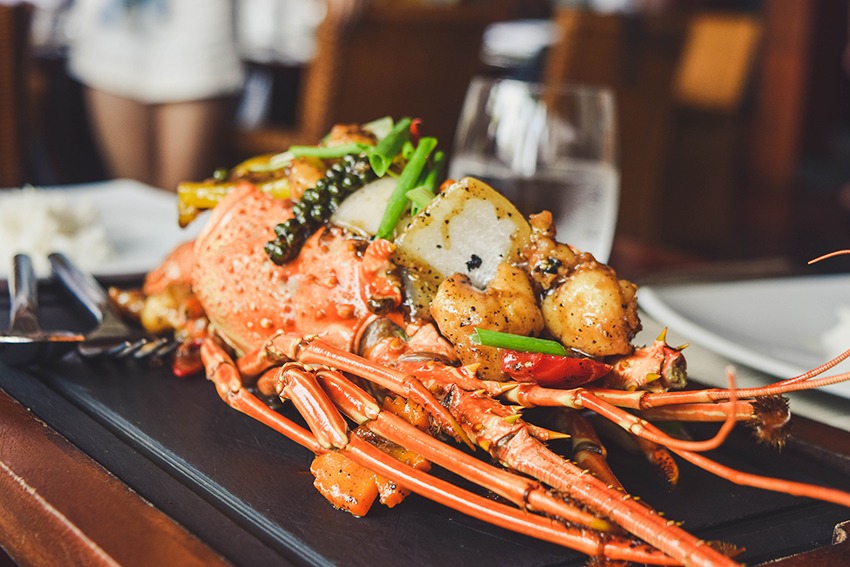
“Life goes on”
Australia’s export market has seen major disruptions in the past. The UK was once a major importer of Australian agricultural produce, but in the 1970s it moved into the European economic market, cutting off a huge amount of trade. However, we survived, adapted and thrived once again. This latest trade debacle might hurt right now, but Australian producers are nothing if not resilient. We also still have an awful lot to offer.
“Life goes on,” Ferguson says. “We’ve got to adapt, and finding new markets is going to take time. But we have the best lobster in the world. We won’t have any trouble selling it.”
It’s been a tough year for all our fishers. You can help to support our seafood industry by buying more Aussie seafood. Head to greataustralianseafood.com.au for some easy as recipe inspiration and a guide to finding Aussie seafood in your area.


